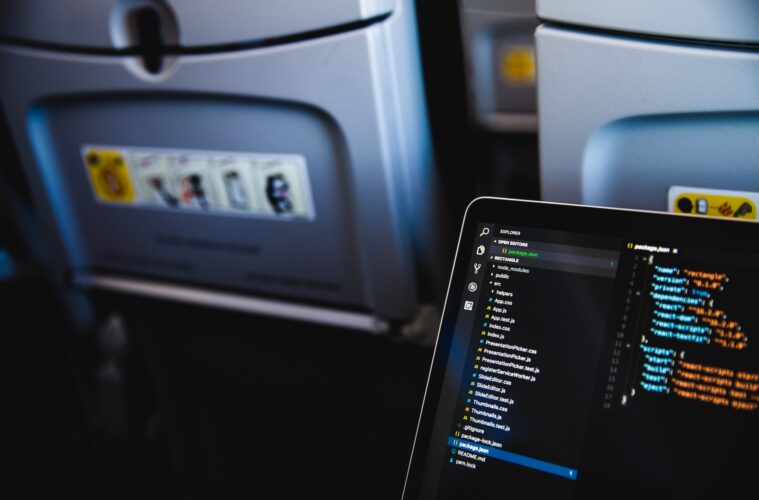Cybercriminals have recently shifted their focus to target a new demographic: travellers. When individuals are getting ready for a trip, they often neglect to consider the importance of cybersecurity. However, failing to for travel security while travelling significantly increases the risk of a cyber attack for both vacationers and business travellers when they are away from home. You were wise to think ahead of time to ask for vacation safety tips. We’ll help you figure it out, what are some good cybersecurity practices when going on a business trip?
What are the 10 recommended tips for cyber security?
#1 Create a backup
Backing up the data of one’s devices to another physical device or the cloud before travelling is a prudent step to ensure the safety of data in the event of a breach or loss of devices while travelling.
#2 Prefer credit cards to debit cards
When making online purchases, individuals are encouraged to consider using a credit card rather than a debit card. Unlike debit cards, credit cards offer safeguards against fraudulent activities. When attackers use funds from a debit card, they make an immediate withdrawal from the user’s personal account, making it challenging to trace or recover the money. In contrast, when using a credit card, individuals are essentially utilising the issuer’s funds, which are more easily trackable and manageable in the event of fraudulent activities.
#3 Be cautious of public Wi-Fi
The simplest way to avoid getting hacked is by restricting public access to one’s phone. By avoiding the use of public Wi-Fi networks, individuals can become the first line of defence against potential cyber threats.
Although public Wi-Fi networks may offer convenience and appeal to many travellers, they can also expose users to a higher risk of cyber attacks. If you don’t want to give up free Wi-Fi, you need to change VPN settings for Android. Do you know how to set up a VPN on Android? All you need is a good app on your smartphone like VeePN. With VeePN for mobile, you can improve your cybersecurity as all data will be transmitted encrypted. Among all cybersecurity tips, this one is one of the most reliable as it protects against many types of cybersecurity threats.
#4 Password protects your devices
Devices should be set to require the use of a PIN, passcode, or an additional security feature (e.g., fingerprint or facial scan). This ensures that the phone, tablet, or laptop remains locked in case it is misplaced or stolen.
#5 Software updates
Operating systems in devices typically come equipped with built-in security systems that receive regular updates from the manufacturers. Ensuring that apps and the operating system are up to date provides better security while travelling. It is advisable to verify that the devices have the latest security patch installed before leaving home to enhance cybersecurity.
#6 Physical security
Keeping devices physically secure while in hotel rooms, airports, planes, or any other mode of transport contributes to preventing unauthorised access, physical theft, and subsequent data breaches. A recommended practice is to avoid leaving devices unattended in public spaces or on any means of transport.
#7 Location sharing
Immediately updating social media networks with pictures and locations is a common practice among vacationing travellers. However, this can pose a potential risk if cybercriminals gain access to their social media pages. These individuals can track the travellers’ location and exploit that information by breaking into their hotel rooms or even their homes to steal valuables while they are away. It is crucial for travellers to exercise caution when sharing information on social media, particularly regarding their whereabouts.
#8 Review app permissions
Applications should be given the absolute minimum permissions necessary for their designated tasks. This approach prevents attackers from wreaking havoc if they gain access through an application, as they will not possess additional privileges.
#9 Protect yourself from prying eyes
One should consider acquiring a privacy screen for their phone and computer. This measure provides protection against shoulder surf attacks initiated by curious onlookers attempting to spy on one’s activities when they are in public settings.
#10 Multi-factor authentication
According to Verizon’s 2021 Data Breach Investigations Report, 61% of breaches are caused by inadequate credential management, including the use of identical passwords across multiple accounts. To enhance personal protection, individuals are advised to utilise strong, distinctive passwords in conjunction with multifactor authentication. Storing these passwords securely in a password manager is recommended. The utilisation of unique passwords mitigates the potential impact in the event of a compromised website. Additionally, enabling multiple methods of authentication for the same website further reduces the risk, as the attacker would need knowledge of the additional factors to successfully authenticate.
Conclusion
Traveling either for business or leisure has become more common in recent years. However, many travellers fail to consider the importance of cybersecurity when they are on the road. By following each of these 10 tips, individuals can reduce their risk of a cyber attack significantly while away from home. And remember – no matter where you go, your safety is always first!



